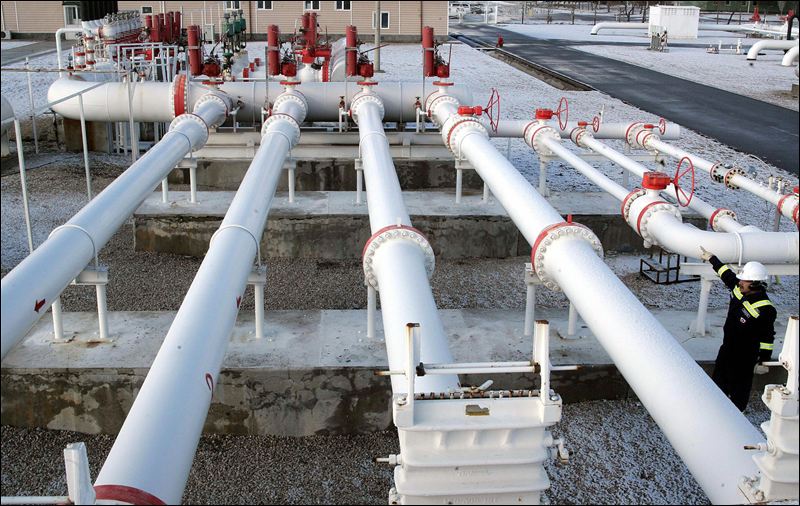CAIRO: Highlighting Egypt’s strategic location and potential for growth, the head of Trade and Investment Promotion at the Polish Embassy in Egypt stressed the need for increased bilateral investments and economic opportunities between both nations.
Michal Mierzwa, who is also the first commercial counselor at the embassy, would like to see Egypt’s share in Poland’s global trade grow from 0.2 percent to at least 1 percent over the next four years.
Despite the many exchange opportunities between Egypt and Poland, Mierzwa told a small group of Egyptian journalists on Tuesday that the economic relations between both countries are just not up to par.
"The problem is that we have low bilateral trade, bilateral ties overall are a very modest amount," he said.
"For example, Poland’s bilateral trade with Turkey, which has a GDP per capita twice as high as Egypt, amounts to $5 billion, while Egypt’s bilateral trade with Poland is 15 times lower, at $300 million."
From agricultural products, to furniture, textiles, or natural resources, Poland would like to see more Egyptian products coming in.
On the other hand, Mierzwa stressed that Poland could also export a wide range of products that can include cosmetics, pharmaceutical supplies, dairy products as well as expertise and technology.
Polish businesses could benefit from Egypt’s sun and history, Mierzwa said, adding that many Polish businesses officials have ventured into partnerships with Egyptian tourism companies.
In fact, Polish visitors make up about 5 percent of Egypt’s tourism. Just last year, about 6,000 Polish tourists visited Egypt.
He added that Egypt’s resources in general, and not just gas or oil, are important assets that will be changing and increasing over the coming period.
Assets related to the country’s rising demands of a growing population, wealth per capita and consumer patterns of Egypt are all going to be important factors changing the economic front for the country and its business partners during the transitional phase.
"It is a happy coincidence that Egypt undergoes historic transformation right now, this is something that we underwent more than 20 year," he said, referring to Poland’s popular revolution against its old communist guard in the 1990s.
"Now, we are major economic players in the European Union, and this emphasizes two things: everything is possible and change is feasible, both politically and economically, but it requires time and quite a lot of effort."
He pointed out that Poland enjoys a similar "mix" of competitive advantages, geographically, and with its youth population.
The comparison between both countries is not "patronizing," but rather highlights the hopes of enhancing the economic ties.
The newly-appointed counselor, who expects to be in Egypt over the next four years, plans to increase cooperation and provide for an even more productive relationship in the coming years.
Poland was rated one of the most attractive investment locations in 2011 by the United Nations Conference on Trade and Development (UNCTAD) while Egypt’s potential for investment opportunities is based on its strategic location in the Middle East region. For this reason, Mierzwa said, investment relations need to be increased.
Currently, 60 Polish companies are invested in Egypt’s market. From 1970 to 2011, Egypt attracted $190 billion worth of foreign investments; Poland has only been $6 million of that.
"What I intend to do over the next four years is a three-part strategy. First, I want to meet as frequently as possible with Egyptian journalists who have a reach with companies in Egypt, I want to learn from their experience," he said.
"Second, I want to set up Polish trade missions, where we can showcase Polish companies and Egyptian counterparts can do the same, and finally, my objective is to multiply contacts with Egyptian business organizations."
At the beginning of 2012, the Polish Information and Foreign Investment Agency and Egypt’s counterpart, the General Authority for Foreign Investment, will sign a memorandum of understanding that has been put off over the past year due to the ongoing political crisis Egypt has been facing.
Mierzwa also emphasized the importance of assisting independent businesses or small and medium enterprises (SMEs).
"We would like to work with all kinds of companies, but also junior business organizations and SMEs are very important because they are main job creator for both Poland and Egypt," he said.
Overall, the Polish counselor expressed hope and optimism in Egypt’s democratic transformation, despite the hurdles which have encountered the country since the January uprising earlier this year.
Mierzwa pointed out that the complications Egyptian protesters in Tahrir Square are facing now because of the "old guard" are natural and expected. He added that there will be much more clarity after elections are complete and the parliament is in place, which is set to be by the end of January 2012.


